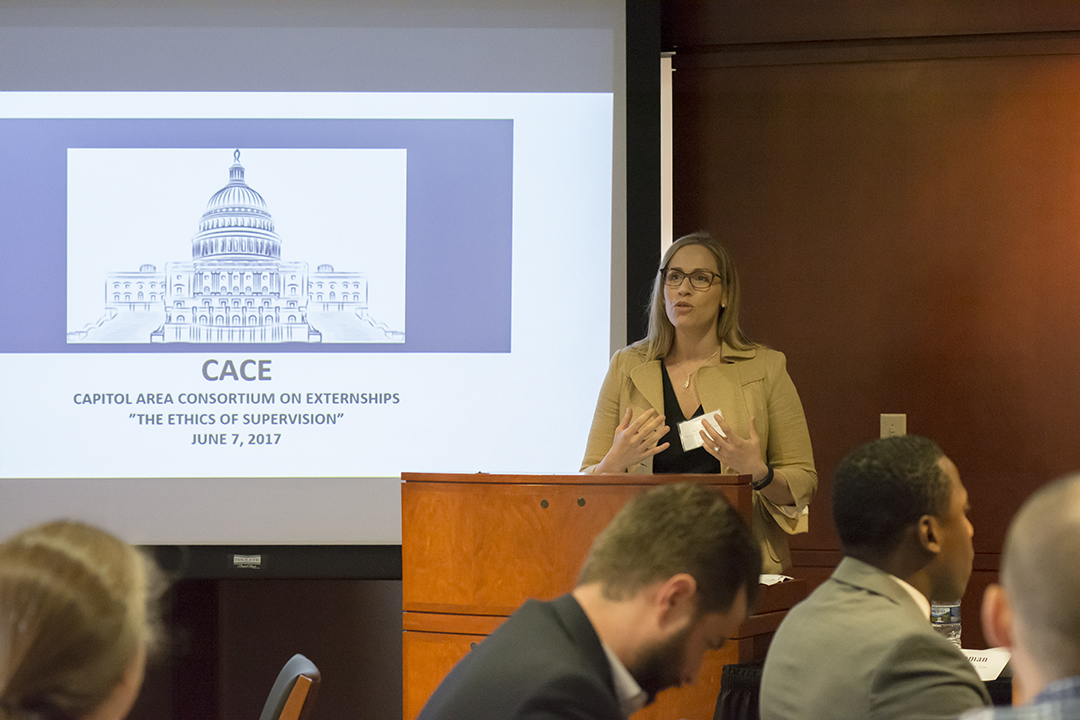Several years ago, the heads of all the D.C. law school externship programs decided to form a group in response to the rise in non-D.C. law schools setting up programs in Washington, D.C.; subsequently, the group was named the Capital Area Consortium on Externships (CACE). CACE serves as an important resource for law schools to share ideas, discuss emerging trends, and develop solutions to issues that may arise in the area of field placements. Last month, GW Law hosted an inaugural two-part event for field placement supervisors. Jessica Tillipman, Assistant Dean for Field Placement, explained that the program helped to remind placements why they should continue to work with the D.C.-area law schools. She added that it was also a great way to highlight GW Law's externship program.
The first discussion, "Ethics of Field Placement Supervision," was designed to help supervisors identify and mitigate ethical issues that may arise in conjunction with their supervision of law students. The second half of the event, "Identifying and Mitigating Field Placement Concerns," was a "best practices" forum, where supervisors and the program directors shared ideas about supervising legal externs. According to Assistant Dean Tillipman, the supervisors enjoyed the second half of the program because "it enabled them to share ideas with each other about how to tackle common externship concerns," she said.
Assistant Dean Tillipman explained that CACE is inspired by GLACE—the externship consortium created by schools in the Los Angeles area. Those schools formed the group to create a joint externship supervisor manual and to serve as an ongoing resource for their externship supervisors. "Several years ago, the D.C.-based law schools decided that a similar group could benefit our law schools and field placements," she said. "Washington, D.C., has the largest externship 'market' in the country, so we wanted to find a way to streamline the information and guidance we provide to our supervisors."
GW Law hosted over 75 attendees from the government, non-profits, and judicial chambers. "Any time we are able to meet face-to-face with our supervisors, it helps our program," Assistant Dean Tillipman said. "This strengthens our relationship with the D.C. legal community and increases the number of opportunities for our students. Most importantly, we are reminded of how committed our supervisors are to providing our students with meaningful and educational externship experiences."
According to Assistant Dean Tillipman, many supervisors shared positive feedback about the event. "I believe all of the D.C. schools are excited about future programming. I envision that we will stick with a similar format because this one worked so well and can be recreated without being repetitive," she said. "And of course, we are open to suggestions from our supervisors regarding the types of programs they would like us to host in the future."


